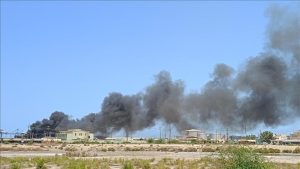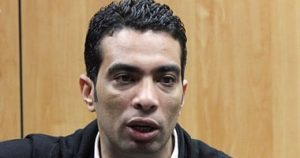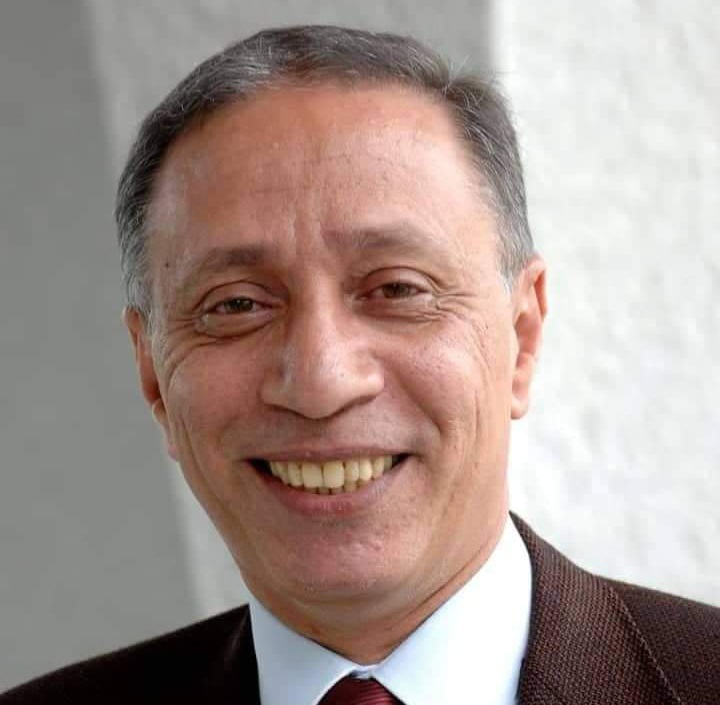On August 23rd, sixty years have passed since the death of Mustafa El-Nahhas Pasha, the resonant name that filled the Egyptian skies for a quarter of a century. Even after the 1952 revolution imposed a silence around him, his name continued to transcend decades, and his death in 1965 did not diminish his legacy. His popularity was evident in the crowds that rushed to his funeral in central Cairo, expressing their sorrow for the loss of their leader and the political values he represented.
Born into a moderately affluent family in the rural Gharbia, his brilliance elevated him to the upper echelons of law and politics during a time when the Egyptian people revolted against British occupation. Coming from the National Party, Mustafa El-Nahhas joined the Egyptian Wafd Party, accompanying Saad Zaghloul and his comrades into exile in Malta and Seychelles. After Saad’s death in 1927, El-Nahhas succeeded him as Wafd leader. He headed the ministry seven times but governed only about seven years, as his cabinets ended by constitutional coups led by Kings Fuad and Farouk.
Opinions suggest that El-Nahhas’s popularity surpassed that of Saad Zaghloul himself. He embodied the Wafd and liberal nationalism, and his popularity stemmed from his firm stance in seeking independence and defending the constitution. He signed the 1936 treaty with Britain, which annulled the controversial February 28 declaration with four reservations, and Egypt joined the League of Nations as an independent state. While the treaty faced understandable criticism, it positioned Egypt ahead of all other colonized countries in Africa and Asia, none of which had gained independence at that time. His insistence on popular sovereignty led to constitutional coups against his ministries, but he never retreated from this commitment. Notably, as a religious man from rural origins, he firmly upheld the separation of religion and state, fearing the politicization of religion and vice versa. When Farouk ascended the throne in July 1938, El-Nahhas refused to add any religious tone to the coronation ceremony.
His ability to unite Egyptians, Muslims and Copts alike, was the secret of his overwhelming popularity.
Despite the decline of the Wafd’s popularity in the 1940s due to the rise of semi-fascist movements and leftist factions, El-Nahhas’s longest rule from February 1942 to October 1944 saw significant social legislation: the 1942 labor unions law, the 1944 individual labor contract law, and accident insurance law. The number of labor unions reached 210 with over 100,000 members in a predominantly agricultural economy. In 1950, against the king’s will, he appointed Taha Hussein as Minister of Education, making education free up to secondary school.
His openness to social issues was matched by openness in international relations. His governments in the 1940s and early 1950s laid the foundations of Egypt’s Arab policy, non-alignment, and liberation from foreign control. In August 1943, his government recognized the Soviet Union and exchanged diplomatic representation. Arab leaders acknowledged his stature; on the eve of the end of the French mandate in Lebanon, Lebanese leaders negotiated sectarian political distribution and sent El-Nahhas the national accord of 1943 as a governance formula. In 1944, his ministry invited the seven independent Arab states to meet, resulting in the Alexandria Protocol in October 1944, the first step toward establishing the Arab League five months later.
His last ministry’s reaction to the 1950 tripartite declaration by the US, Britain, and France was a clear rejection of the status quo favoring Israel after the 1949 armistice agreements. El-Nahhas’s government declared the declaration violated Egyptian sovereignty and that resolving the Palestinian issue could not be done by decisions of major powers alone. Egypt’s steadfast support for Palestinian rights was unwavering. His ministry also refused to join the Western bloc in the Korean War in 1950.
His fight against foreign control was expressed in inviting Dr. Mohammad Mosaddegh, Iran’s Prime Minister, to Egypt after El-Nahhas canceled the Anglo-Egyptian treaty in October 1951. Mosaddegh had nationalized Iranian oil in April 1951, recalling the Suez Canal nationalization five years later. El-Nahhas also had a strong friendship with Indian leader Jawaharlal Nehru, a continuation of the anti-colonial struggle ties between the Egyptian Wafd and the Indian Congress since the early 20th century. When Nehru visited Egypt in 1953, he requested to see El-Nahhas despite his fading political presence and was granted the meeting. Nehru was a star of the 1955 Bandung Asian-African Conference and a founder of the Non-Aligned Movement years later.
Commemorating Mustafa El-Nahhas, the nation’s leader for decades of its contemporary history, celebrates the soundness of Egyptian governance and their appreciation for those dedicating their lives to them. It acknowledges that history is continuous, with stages that succeed and nourish each other.













Recommended for you
Exhibition City Completes About 80% of Preparations for the Damascus International Fair Launch
Talib Al-Rifai Chronicles Kuwaiti Art Heritage in "Doukhi.. Tasaseem Al-Saba"
Unified Admission Applications Start Tuesday with 640 Students to be Accepted in Medicine
Egypt Post: We Have Over 10 Million Customers in Savings Accounts and Offer Daily, Monthly, and Annual Returns
His Highness Sheikh Isa bin Salman bin Hamad Al Khalifa Receives the United States Ambassador to the Kingdom of Bahrain
Al-Jaghbeer: The Industrial Sector Leads Economic Growth